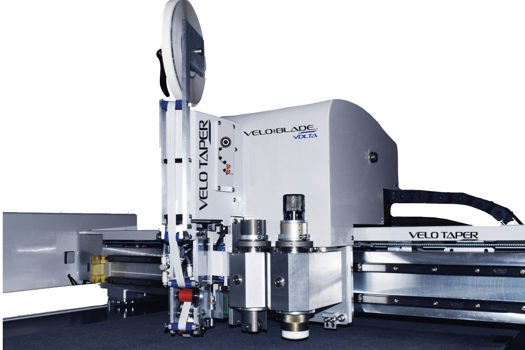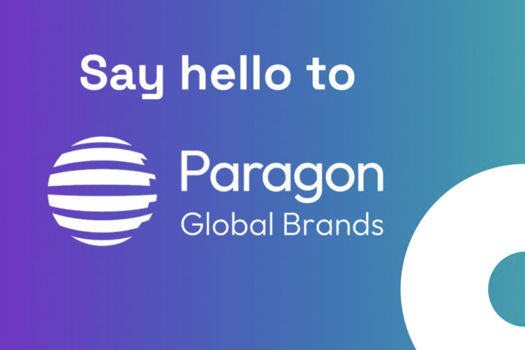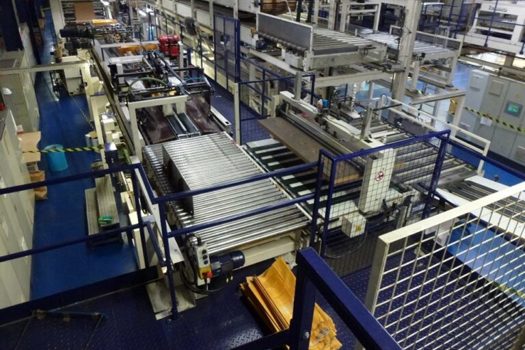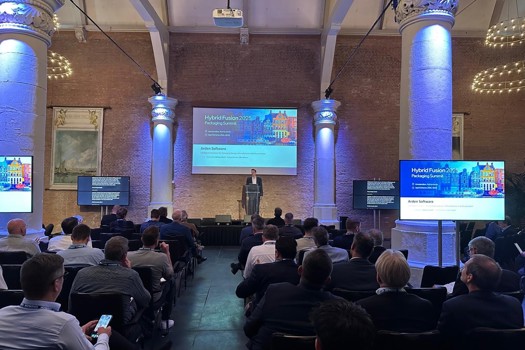Back in June, Midlands-based Rotary Creative & Print became an early adopter as only the third printer in the country to take on a new Xerox Versant 180 digital press. The machine itself was only launched two months earlier, so both print company and manufacturer had a lot to live up to.
According to Xerox, the Versant 180 will help users “gain a competition-busting quality, attract new business, increase margins and earn a reputation for excellence”.
This sounds good but does hold true for Rotary Creative Print? The company has served businesses around Stourport-on-Severn, Worcestershire, since 1970 when Brian Liggins built a print works from breeze blocks and reused roofing tiles and ran off dance tickets and leaflets.
Daughter Teri (now Teri Baron) joined in 1979; brother Paul in 1983; and by 1985, they had taken over local Peter Handley Stationery, now managed by Paul. Baron took over as managing director when her father retired in 1996 and today the two companies combined have 22 staff and a turnover of more than £2m.
“We wanted to take on heavier duplex business cards and needed faster turnarounds with no loss on quality of print,” she says. “More clients want jobs done within one to two days, so we needed a fast machine, a quick setup and no nonsense.”
On paper the machine ticked the boxes: it runs at 80ppm, takes paper weights up to 350gsm, although Rotary has been pushing the boundaries of that, and has a maximum sheet size of 330x660mm. Baron was taking no chances, however, and not even the allure of being an early adopter eclipsed those shadows of uncertainty.
She looked at more seasoned machines and options from both Konica Minolta and Ricoh had their pluses. But the Versant 180 had the edge thanks to its speed, long-sheet capabilities and the cost-effectiveness of its operation. There was one other big bonus. Rob Lacey.
The production specialist at Staffordshire-based supplier Zerographic has worked with Baron and her team for a decade and she rates his technical prowess and laid-back manner. There is no hard sell with Lacey, she says – he looks at the business, your substrates, finishing kit and your market.
Rotary Creative & Print serves businesses, agencies and consumers with a mix of Heidelberg litho and digital kit, including a four-colour B2 Heidelberg Speedmaster, a four-colour GTO 52 and two two-colour GTOs. It runs a large-format Epson and two Xerox printers, a DC260 and a 700. Finishing kit includes collating and stitching line, Polar guillotine, Matrix digital laminator and foiler; it also offers web and digital marketing services.
It was the digital people she sent to the Xerox base in Milton Keynes to test jobs for business cards and leaflets using complicated stocks and tricky colours. They came back impressed with its capacity to take heavier papers, its clean print images and its stability.
Final proof
It was almost a done deal, but Baron wanted to see the kit for herself and did just that at PrintWeekLive! in March at the Wasps Arena, Coventry. She ordered the machine in May and three weeks later the Versant 180 was trucked in bits and assembled in one day at Mitton Street, Stourport-on-Severn.
Rotary Creative & Print paid around £30,000 for the press. It replaced the Xerox 700, which was rehoused downstairs for a walk-in copying service and as a backup. The Xerox DC260 meanwhile is now used for proofing.
“Installation was brilliant. We redesigned the factory a few years ago and put in a gallery landing so we could move equipment upstairs and downstairs with more ease. Rob Lacey then came back and spent a day teaching our digital guys how to operate the new machine.
“He oversaw both installation and training and, as technical type of person, he was a huge help. When it came to choosing the Fiery front-end, for example, he knew all our needs and finishing capabilities. That personal contact and knowledge of your business is important when you are buying and installing a new machine.”
By July the Xerox Versant 180 was running full pelt, saving one and a half hours a day in faster turnarounds. Orders come in, job files are sent to the Fiery and the software lays out and optimises artwork for printing. In goes the substrate and out comes the printed material to be carried downstairs for finishing and then sent on its way through the door to the customer.
An early test of the new Xerox’s capability came two weeks after installation when a harried customer burst in, desperately in need of business cards for a trade show at a local hotel. Couriering them from his Newcastle HQ would have taken four hours. On the Xerox, however, the artwork was loaded up at 9.30am and by 10.25am a more-than-satisfied customer had a boxful of glossy business cards.
This is just the degree of service Baron wants and demands. As BPIF regional vice-chair for the Midlands she has a beef on how “un-customer-centric” the print sector has been in the past, and is sometimes still perceived even now. As such she’s resolved to blow the tired old myth of a sector that will supply when they decide using outdated methods and old machinery.
The new Xerox Versant 180 has not a whiff of the oily rag about it, she insists: “It has settled in really well, enabling us to give a much faster turnaround of work. We can print duplex business cards and jobs on 400gsm stock, which is a big plus for things like restaurant menus, folders, wallets and point-of-sale material.”
Baron is hard put to find fault, but there have been a few minor issues: for particularly toner-heavy work, the team has to keep an extra close eye on stock levels.
The Versant 180 also takes a long time to cool down after the ‘off’ switch is hit at 5pm and Baron is ready for a spot of hockey – she is keen and mean with the stick and the first woman president in the 125-year history of Stourport Hockey Club. But by 6pm when she’s ready to lock up and leave, that Xerox is still whirring and rumbling as the temperature drops off.
The only “tiny hiccup” meanwhile involved long-sheet registration. Xerox, usually offer a next-day service, but luckily the techies were on a job nearby, so they popped over to Stourport-on-Severn and sorted the issue that same day with a few nifty tweaks.
It is still, however, early days. Baron’s team is “going through the capabilities” and hasn’t tested the device on some of the obscurer stocks. The commercial printer also installed a Matrix MX-530DP digital laminator and foiler around the same time, which has extended the learning curve, she says.
“But I would definitely recommend the machine and might possibly buy another one,” she concludes. “Biggest pluses include how quickly it can process artwork. There are lots of templates for business cards, leaflets and brochures – you just load the artwork and it does the rest.
“It has given us greater flexibility, quicker turnaround, shorter lead times and less waste because you don’t need so many sheets to makeready.
“These days printers have to look at diversifying: if we had stayed as a litho printer and nothing else, we would no longer be here. You have to look at what’s new and on-trend. The Xerox Versant 180 is both new and on-trend and being an early adopter has paid off massively.”
SPECIFICATIONS
Speed 80ppm
Paper weights A4 52gsm to 350gsm
Max sheet size 330x660mm
Resolution 2,400x2,400dpi
Average monthly print volume Up to 80,000
Duty cycle 750,000
Digital front-end Xerox EX 180 print server powered by Fiery
Footprint 760x831mm
Price Around £30,000
Contact Zerographic Systems 01785 711800 www.zerographic.com
Company profile
Stourport-on-Severn-based Rotary Creative & Print produces business cards, stationery, brochures and POS for local businesses, agencies and consumers. The 22-staff company runs four litho and four digital machines and along with sister company Peter Handley Stationery makes just over £2m turnover.
Why buy the kit?
“We wanted a machine that would enable us to take on heavier stocks and speed up turnarounds. We are adding extra services for people that want things within a day or so. We’re fast-turnaround and customer-centric, that’s the way the print industry is going,” says managing director Teri Baron.
How has it performed?
“The Versant 180 has met my best expectations: it processes files quickly, has given us greater flexibility, quicker turnaround, shorter lead times and less waste because you don’t need so many sheets to make-ready,” adds Baron.










